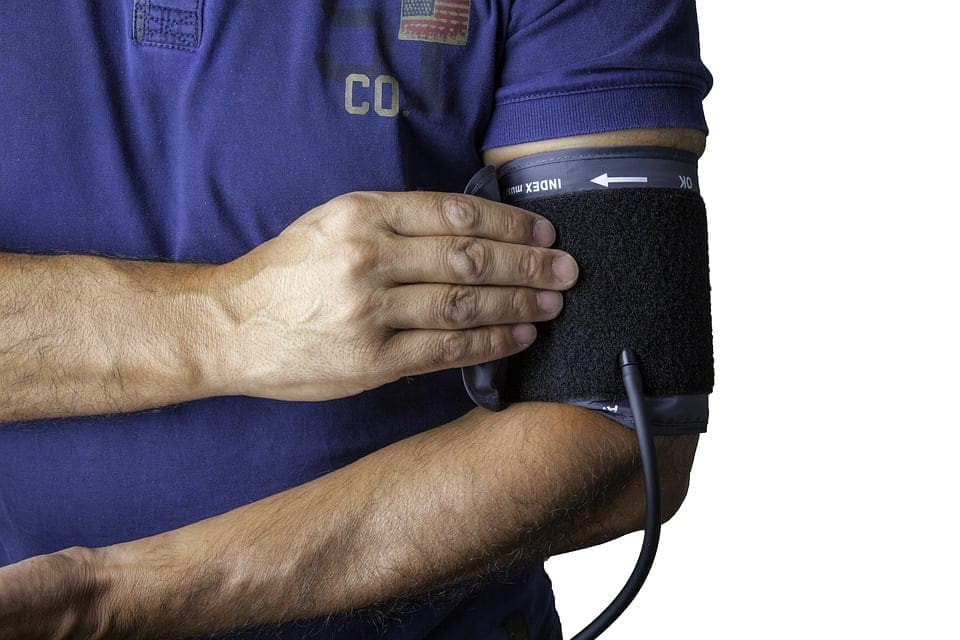
High blood pressure is one of the three most important risk factors for coronary artery disease and heart attacks. As far as strokes or brain attacks are concerned, all physicians and scientists agree that high blood pressure is the most important risk factor of all.
Knowing the facts about blood pressure is an important step in dealing with it. Blood pressure is the force created as the heart pumps blood and moves it through the blood vessels. This continuous blood flow provides the body with the oxygen and nutrients it needs. In short, it keeps a person alive. Understanding what blood pressure is and its role in keeping one alive and healthy helps a person see how problems with the blood vessels or arteries may create high blood pressure and harm one’s health.
The normal blood pressure
A blood pressure reading measures the force of blood as it presses against the walls of your arteries. It is made up of two numbers that denote the force of blood as the heart is pumping and as the heart is resting and filling up with blood.
The top number is the systolic blood pressure which is a measure of the force while the heart pumps. A normal healthy systolic blood pressure is 140 or below. The bottom number is the diastolic blood pressure which is a measure of the force while the heart is at rest-that is between heart pumps or contractions. A normal, healthy diastolic blood pressure is 90 or below.
The blood pressure changes normally
While the diastolic blood pressure usually stays at about the same level all the time, the systolic blood pressure changes frequently. These variations represent the body’s normal response to daily activities and stress. When one exerts physically such as lifting a sack of rice or running, the blood pressure goes up. When one sleeps or rests quietly, the blood pressure goes down.
When blood pressure is too high
When the blood pressure is too high, that is, rises and remains above the normal range, blood cannot flow freely through the arteries and the heart has to pump harder than it should. Why one develops high blood pressure or hypertension is not entirely clear. Sometimes it is due to hormonal problems or conditions present at birth that can be corrected. Although usually, the cause of high blood pressure is unknown, the effects are not. Left uncontrolled, high blood pressure can lead to several serious health problems and even death.
As a person ages, the arteries undergo changes that cause the opening of the arteries to narrow and blood flow to become restricted and even blocked. These changes are aggravated and accelerated by high blood pressure as well as by smoking, high cholesterol levels, and heredity.
A stroke or brain attack results when arteries in the brain become blocked. Without blood, brain tissue dies and the functions controlled by that part of the brain which is affected are lost. A stroke also happens when too much pressure bursts a blood vessel in the brain.
Blindness or impaired vision occurs when tiny blood vessels in the back of the eye rupture or become blocked, damaging the surrounding tissue.
A heart attack results when arteries in the heart muscle become blocked. Part of the muscle “starves” and dies and the heart pumps less effectively.
Heart failure results when the heart pumps too hard for too long, trying to keep blood flowing through the body. Like an overused rubber band, the heart muscles slowly lose their elasticity and pumps very inefficiently.
Kidney failure happens when tiny vessels in the kidneys become blocked. The kidneys lose their ability to cleanse the body of wastes and the body is slowly poisoned by these.
Confront the silent killer
Since high blood pressure rarely shows symptoms, the only way to know for sure if you are falling prey to it is to check your blood pressure. Now is as good a time as any to have your blood pressure checked. If it is normal, continue to have it checked periodically. If it is high, see your doctor, and together, you can establish a plan to keep it under control.
Your doctor will recommend a plan of action which may include diet, lifestyle changes, and medications. It is also important to mention that if you struggle with high blood pressure it is important to wear a Medical ID bracelet. Wearing the bracelet will ensure that you receive the right treatment at the right time in case of an emergency. Your participation in this plan is the key to protecting yourself from future problems. Remember it is up to you to stop the silent killer’s attack.

Be the first to comment